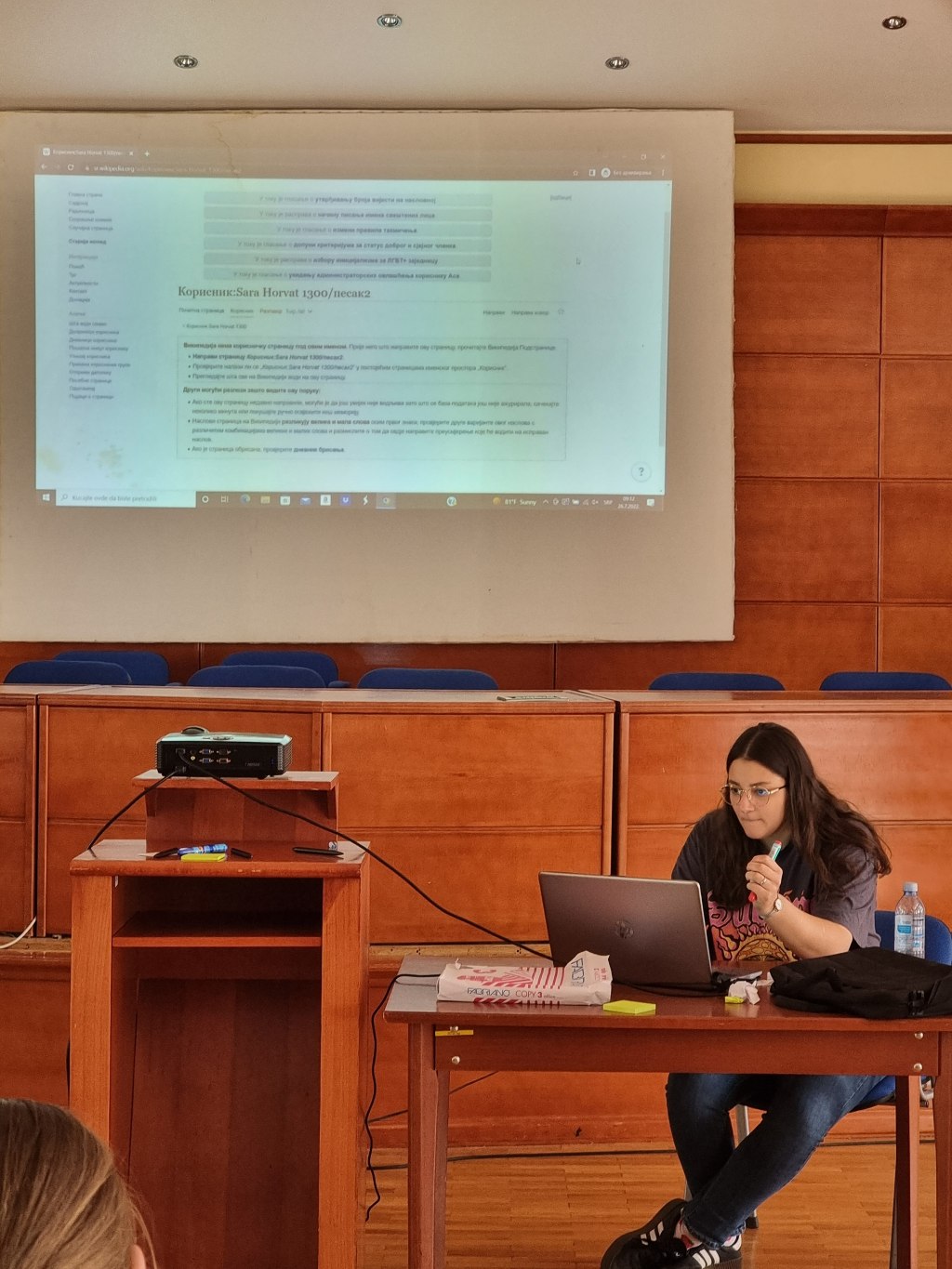Sara Horvat might be a newcomer, but this student is already proving the importance of education work in Wikimedia. She is a Wikimedian from the CEE Community, editing Wikipedia, Wikimedia Commons and Wikidata, with the main focus on education projects. This month we celebrate her work and her dedication to education projects in our movement.
It all started in 2021 when a friend told Sara about the online Edu Wiki Camp organized by Wikimedia Serbia. Immediately Sara felt drawn to an event built around free and accurate information, and connected to the Wikimedia mission. She decided to participate and is now a Wikipedia ambassador in Serbia, working on building relationships between Wikimedia projects and Belgrade universities. She is also a regular editor, and a trainer, teaching newcomers how to edit. She also supports partnership work: she collaborated with Serbian Academy of Sciences and Arts on writing articles about the institution and their members. This work contributed to more articles about largely unknown Serbian scientists, all of whom gave fascinating contributions to the field they worked within, not just locally, not even regionally, but globally (for example Dušan Čamprag – an agricultural engineer and entomologist, author of more than 184 scientific papers).
Sara stays connected to the Edu Wikicamp; she came back in 2022 for an in person edition of the event held in Fruška Gora. Those 4 days spent in nature, full of Wikimedia education discussions, collaborations and connections, are one of her favorite memories from the Wikimedia movement.

For Sara, it is important that young people have strong fact checking and critical thinking abilities, the core life skills needed for them to thrive in today’s (and tomorrow’s) world. She finds Wikimedia a perfect tool to teach them this critical engagement with information and knowledge. She is interested in the idea of knowledge, and the historical changes around it. Why are knowledge and education so important? What does the widespread access to knowledge give us? – she keeps asking young participants of the Wikipedia training that she conducts at the beginning of each workshop. And those questions spark discussions and debates, leading to a better understanding of the Wikimedia mission, values and importance.
Sara notices that many people still don’t understand Wikipedia, and the importance of it. They are also unaware of the robust fact checking and editing communities busy working on keeping the articles accurate, neutral and trustworthy. She would like the public to know more about Wikipedia and the Wikimedia movement. I wish everyone could comprehend the importance it has. I wish everyone could see the powerful potential it holds. – she says.
The idea of knowledge equity is important to Sara: Wikimedia projects unite people and can erase all class divisions between them. Once only the aristocracy could get high-quality education. Now, it is more and more available to everybody. I want to help make authentic knowledge as accessible as possible to every single person. This important mission keeps her motivated and present. Asked about the advice she would give to every Wikipedian, she says: Be persistent and patient. Remind yourself why you started in the first place. Remember that it’s about something way bigger than yourself alone.

Can you help us translate this article?
In order for this article to reach as many people as possible we would like your help. Can you translate this article to get the message out?
Start translation